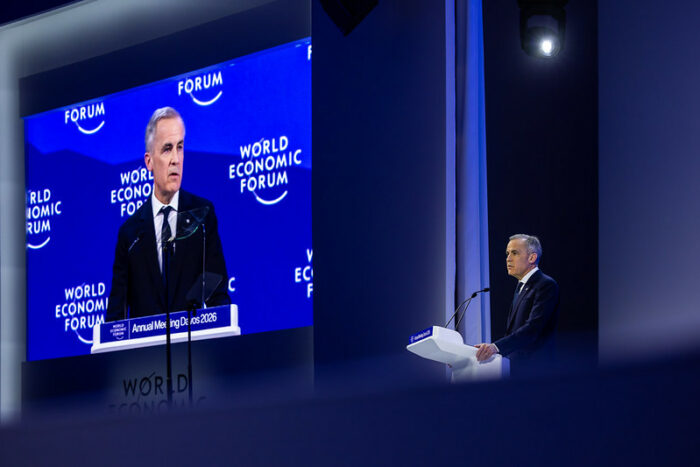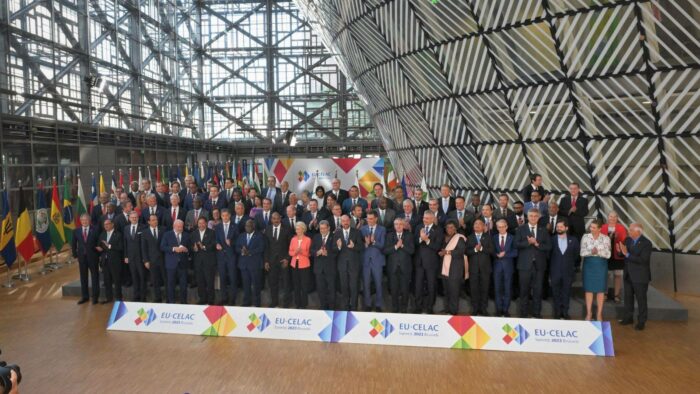The Progressive Post
How Europe can step up on trade and aid as the US retreats from global institutions

The global economic landscape is shifting rapidly as the United States turns inwards, retreating from key multilateral institutions and disrupting long-standing trade norms. The EU, and Europe more broadly, now face a historic opportunity to step into the void left by the US, strengthening trade partnerships and development aid to stabilise global markets and assert its role as a leader in sustainable economic growth. If Europe takes decisive action, it can enhance its geopolitical influence while fostering economic resilience at home and abroad.
The recent US administration has demonstrated a marked shift towards protectionism, imposing sweeping tariffs on imports from Canada, China, Mexico, and even from its European allies. Simultaneously, it has withdrawn from key international agreements, including the Paris Agreement on climate change, and from the United Nations Human Rights Council. In a drastic move, the US has also suspended all foreign aid, closed the US Agency for International Development (USAID), and signalled its intent to scale back its participation in multilateral organisations.
These actions have far-reaching consequences. Protectionist policies risk triggering a global trade war, exacerbating economic instability, and slowing the transition to a greener global economy. With the US stepping back, a leadership vacuum has emerged in international trade negotiations, climate diplomacy and global development. A key question is whether the EU will rise to the occasion.
Europe as a reliable trade partner
The EU is well positioned to reinforce global trade stability in the wake of the US retreat. As the world’s largest trading bloc, the EU has the economic leverage to set international trade standards, foster new agreements and promote ethical trade practices. There are many steps the EU and other European countries could consider to deepen partnerships with the Global South. With the US pulling back, many developing economies will seek more reliable trade partners. Europe could prioritise strategic agreements with African, Latin American and South Asian nations. Enhancing trade ties through equitable trade agreements and reducing trade barriers can help stabilise low-income countries reliant on exports. This is a potential win-win situation as many European businesses, from food exporters to Asia to manufacturers exporting to Egypt, trade with developing countries.
European nations have also prioritised ethical trade and the promotion of regulations to support environmental and social goals. The EU Regulation on Deforestation-free products and the Corporate Sustainability Due Diligence Directive are important mechanisms to support reaching the commitments linked to the Paris climate goals and the convention on biodiversity. However, this legislation should be implemented to support compliance among poorer countries and producers. It should not simply burden them with extra costs or shift trade to other countries with less stringent laws. Supporting compliance among poorer countries and producers will reduce economic vulnerability and create more resilient supply chains. The issue of trade diversion is perhaps most pronounced in the case of China. As tensions between the US and China escalate, Europe needs to take a balanced approach. While maintaining economic ties with China is crucial, European countries should ensure that fair competition, environmental sustainability and human rights standards are upheld.
Reversing aid cuts to boost stability
A second key component of Europe as a reliable partner is its approach to development assistance. While the US withdraws from international development aid, Europe has unfortunately followed suit. Several European governments, including France, the Netherlands, and the UK, have slashed their aid budgets significantly. However, cutting aid not only diminishes humanitarian efforts but also destabilises global markets and exacerbates migration pressures. Aid needs to be seen as an investment in global stability, not as mere generosity. Economic turmoil in developing nations can lead to security threats, humanitarian emergencies and market disruptions that ultimately affect Europe.
There are a number of relatively low-cost interventions where European investments could be partially beneficial at this time. As traditional aid models are under strain, innovative financing mechanisms – such as carbon taxes, debt-for-nature swaps and expanded carbon markets – could generate billions for sustainable development. Europe could lead efforts to implement these mechanisms at scale. There is also potential to increase clean energy investments across Africa massively. The continent’s renewable energy sector presents a significant economic opportunity. European countries could increase their financial support for clean energy projects, providing low-interest loans and guarantees to attract private investment. A study by Financial Sector Deepening (FSD) suggests Africa’s renewable energy sector could generate 3.3 million jobs – potentially reducing migration pressures while bolstering economic growth.
It is recognised that through their remittances migrant workers often contribute more to their home countries than official aid programmes. Yet high transfer fees erode these funds. European countries could take the lead in lowering transfer fees for remittances to 3 per cent, which could save African families $16 billion annually, reinforcing economic resilience in developing regions.
Policy coherence for development: the EU’s opportunity
To maintain credibility as a global leader, the EU should align its trade, aid and climate policies. Policy coherence is crucial – supporting development while avoiding policies that undercut progress. This means ensuring trade agreements do not exploit developing nations, prioritising sustainability in investment initiatives and leading global climate action efforts. As the US retreats from global leadership, the EU has an opportunity – and an obligation – to step up. Europe can cement its role as a reliable global partner by reinforcing trade stability, investing in sustainable development and reversing aid cuts. Multilateralism is under threat, but the EU can uphold its principles, foster international stability and drive inclusive economic growth.
This is not just a moral imperative – it is an economic and strategic necessity. Without US leadership, the EU must act decisively to ensure that the European bloc emerges as the architect of a more stable, fair and sustainable global economy.
Photo credits: Shutterstock.com/davide bonaldo




